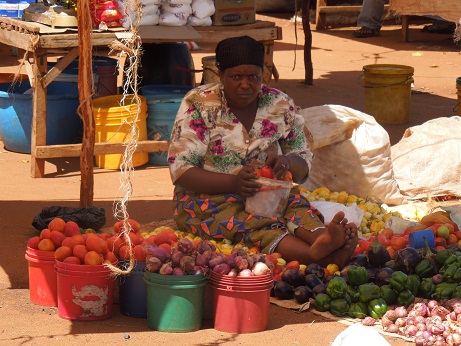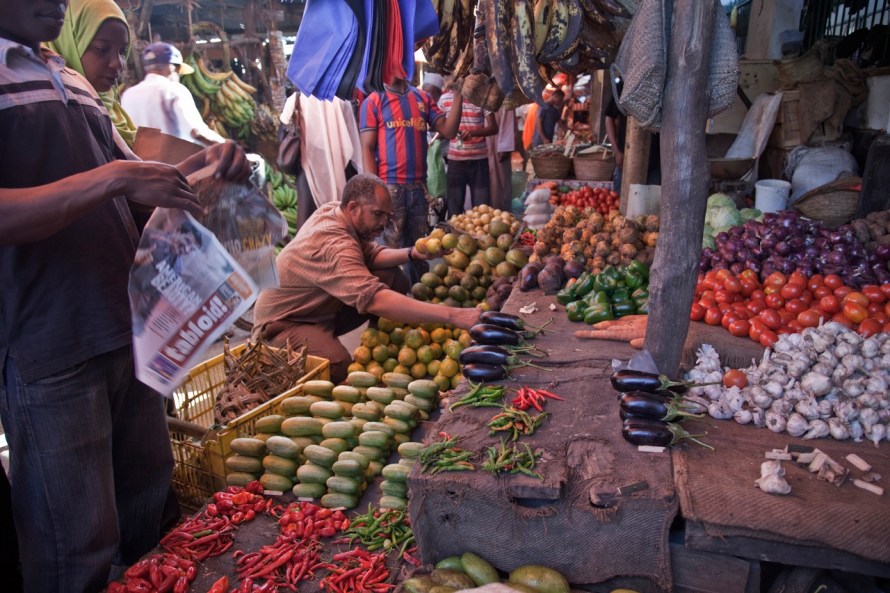Bargaining in Tanzanian markets is an art form that is deeply woven into the fabric of daily life. One might find it surprising that in many cases, the initial price for goods is purposely inflated, expecting the buyer to negotiate. This dance of bargaining not only reflects the sellers’ adaptability but also the buyers’ negotiation skills and understanding of market dynamics.
Historically, bargaining in Tanzanian markets has been a generational practice, teaching young traders the nuances of commerce. A significant aspect is to engage in friendly negotiations instead of aggressive haggling, which builds rapport and trust. Over 90% of transactions in local markets involve some form of price negotiation, highlighting its importance in the economic culture.

How do I bargain in Tanzanian markets?
Bargaining in Tanzanian markets can be both fun and challenging. First, you need to know that marked prices are just a starting point. Sellers often expect customers to negotiate. It’s common to offer half of the asking price initially. Then, you can settle on a value somewhere in the middle.
Understanding the quality of the goods you are purchasing is crucial. Take your time to examine items closely. Ask questions to gauge the seller’s knowledge and honesty. Sometimes, showing that you are well-informed can give you an advantage. Trust your instincts and learn from each experience.
When bargaining, try to build a friendly rapport with the seller. Greet them warmly and use basic Swahili phrases, like “Habari” (Hi). This shows respect and can make the negotiation smoother. Engaging conversations can lead to better deals. Sellers appreciate polite customers and may offer discounts.
Employing specific tactics can help you get a fair price. Always remain calm and collected. Indicate that you have time to compare prices elsewhere. Sometimes, pretending to walk away can prompt a better offer. Finally, agree on a price that feels reasonable for both parties.
Understanding the Initial Price Offered
The initial price offered in Tanzanian markets often seems high. This is because sellers expect buyers to negotiate. They start high, knowing you’ll likely counter with a lower offer. Understanding this strategy helps you feel more confident. You’ll realize you’re not being overcharged from the start.
Sellers tend to inflate prices more for tourists. They believe tourists might not know local prices. If you’re unfamiliar with costs, do a little research first. Knowing average prices for common items can be helpful. This preparation helps you challenge unrealistic prices easily.
Don’t feel pressured to accept the first price. It’s normal to engage in a bit of friendly haggling. Politely asking for a better price usually works. Sellers often respect customers who bargain wisely. They may even enjoy the process.
You can learn a lot by observing the market. Watch how locals bargain with vendors. Noting their strategies can give you useful tips. Mimicking local bargaining styles often yields better results. Plus, it shows you’re serious about getting a fair deal.
Assessing the Quality of Goods
Assessing the quality of goods in a Tanzanian market is essential. Begin by closely inspecting the items you are interested in. Look for signs of wear, damage, or imperfections. Quality can vary greatly between stalls. Taking time to examine items ensures you make a wise purchase.
Don’t hesitate to ask the seller questions. This can help you gauge their honesty and knowledge about the product. Sellers generally appreciate curious customers and might offer more information. Ask about the item’s origin, materials, and how it was made. This can provide insights into its quality and durability.
Trust your senses when evaluating goods. Feel the fabric, smell the spices, or taste a sample if allowed. Sensory testing can often reveal a lot about a product’s quality. For instance, high-quality fabric feels smooth, while fresh spices have a strong aroma. Relying on your senses helps you make better choices.
Making comparisons is also helpful. Check similar items at different stalls. Compare their quality and prices to find the best deal. Sometimes, the extra effort leads to discovering higher quality items at lower prices. This ensures you get value for your money and enjoy your shopping experience.
Engaging with Sellers
Engaging with sellers in Tanzanian markets is crucial for a successful shopping experience. Start by greeting them with a friendly “Habari” or “Jambo.” This simple gesture can break the ice and build rapport. A warm approach often results in better interactions. Sellers appreciate politeness, and it can lead to more favorable negotiations.
Body language plays a significant role when dealing with sellers. Maintain eye contact and smile to show your interest. Nod while they speak to indicate you are listening. Positive body language can make sellers more receptive. It demonstrates respect and can foster trust between both parties.
Asking questions is key to engaging effectively. Inquire about the products, their origins, and how they are made. This shows genuine interest and can lead to insightful conversations. Sellers often take pride in sharing their knowledge. It also indicates you’re not just a casual browser.
Building a connection with the seller can lead to perks. They might offer you better prices or throw in a small free item. Engaging beyond just haggling shows you value their business. Many sellers enjoy the social aspect of trading. Developing a friendly relationship can enhance your market experience.
Stay patient and respectful throughout your interactions. Some sellers might be slower to engage or less willing to negotiate initially. Keep a calm demeanor and know that patience often pays off. Respectful persistence can eventually lead to a satisfying deal. Treating sellers with kindness can go a long way.
Sometimes walking away can be a strategic move. If you can’t reach an agreement, thank them and start to leave. Sellers might call you back with a better offer. This tactic works well but should be used sparingly. It shows you are serious about fair prices but still respectful.
Negotiating Tactics to Employ
When bargaining in Tanzanian markets, start by knowing the local pricing. Research ahead of time for a rough idea of fair prices. This helps you offer realistic counter-prices. Sellers respect buyers who have done their homework. It sharpens your negotiating power.
Initiating the negotiation with a low but reasonable offer is key. Avoid going too low as this may offend the seller. Aim for about half to two-thirds of the starting price. This leaves room for the seller to counter higher, leading to a middle ground. Such offers show you are serious yet savvy.
A friendly attitude can significantly impact your negotiation. Smile and keep the conversation light-hearted. Humor can ease tension and make the process enjoyable. Sellers are more likely to offer discounts to pleasant buyers. Remember, politeness always pays off.
Be prepared to walk away if necessary. Sometimes moving on can be a tactical move. This shows the seller they might lose your business. Often, they will call you back with a better deal. Use this tactic wisely to strike a fair bargain.
Bundling items for a better deal can also work well. If you plan to buy multiple items, negotiate for a bulk discount. Sellers are often more flexible when you buy in quantity. This technique can help you save more overall. It’s a win-win for both parties.
Finally, carry small denominations of cash. Having the exact change can help conclude a deal quickly. Sellers may be more inclined to accept a final price if you can pay immediately. This also avoids the hassle of finding change. Small cash keeps transactions smooth.
Cultural Insights for Effective Bargaining
Understanding local customs is crucial when bargaining in Tanzanian markets. It’s common practice to greet the seller warmly. Using phrases like “Shikamoo” for elders or “Habari” for peers shows respect. Engaging in simple conversations before discussing prices helps build rapport. This friendly approach is greatly appreciated by sellers.
Demonstrating patience can improve your bargaining experience. Rushing the process may come off as rude. Sellers value a laid-back attitude and often take their time. By being patient, you signal that you respect their way of doing business. This can lead to more cooperative negotiations.
Recognize that bargaining is not just transactional; it’s social. Building a relationship with the seller can lead to better deals. Discussing topics like family or local news creates a bond. This social connection can sway the seller to offer you fairer prices. Making the experience enjoyable is part of the culture.
Respect their decision if a seller declines your offer. Arguing can be considered disrespectful and harm negotiations. If you cannot agree on a price, thank them and move on. Leaving respectfully keeps the door open for future transactions. Sellers will remember your courtesy and may be more flexible next time.
Learning a few Swahili phrases can greatly enhance your interactions. Simple words like “Asante” (Thank you) and “Tafadhali” (Please) go a long way. Sellers appreciate the effort to communicate in their language. It shows respect for their culture and encourages positive dealings. Even small efforts can make a big difference.
Finally, always respect the market traditions. Tanzanian markets are vibrant places with deep-rooted customs. Understanding and respecting these traditions enrich your experience. It turns shopping into a cultural exchange rather than a simple purchase. Embracing these insights leads to more meaningful interactions.
Typical Items to Bargain for in Tanzanian Markets
Bargaining is a common practice in Tanzanian markets, especially for certain types of items. Handicrafts and souvenirs are popular products that invite negotiation. From colorful beadwork to exquisitely carved wooden pieces, these items often have flexible prices. Sellers expect buyers to haggle over the final cost.
Clothing and textiles are also typical bargaining items. Local fabrics like kitenge and kanga can vary widely in price. Examine the quality before you start discussing the price. Suggesting a fair rate usually leads to agreeable terms. Many shoppers find great deals on beautiful attire by negotiating effectively.
Fresh produce is another category where bargaining is common. Fruits, vegetables, and spices fill the stands in vibrant abundance. Prices for these items can fluctuate daily based on supply and demand. Engaging sellers in friendly haggling can secure you fresher produce at lower prices.
Electronics and household items are worth haggling over too. Although not as commonly negotiated as local goods, there is still room for discussion. Checking multiple stalls helps you understand going rates better. Sellers might reduce prices if they see you’re serious about buying.
Curiosities and antiques present unique opportunities for bargaining as well. Markets often feature stalls with old coins, vintage utensils, or historical artifacts. These items do not have fixed prices and their value can be subjective. Knowledge about their history can be handy during negotiations.
Items like jewelry are also frequently bargained for in these markets.
You will find
- -handmade necklaces
- -bracelets
- -earrings
Sellers often quote high prices initially, leaving ample room for negotiation.
Aim to highlight any flaws or imperfections while discussing price adjustments.
Your chances of getting a good deal increase through skillful bartering.
Key Phrases to Use While Bargaining
Using key phrases can enhance your bargaining experience in Tanzanian markets. Start with greetings like “Habari” (Hello) or “Shikamoo” (A respectful greeting for elders). This helps establish a friendly connection. Sellers appreciate customers who make an effort to speak Swahili. It can set the tone for a positive negotiation.
When inquiring about prices, ask “Bei gani?” which means “How much?” It’s a simple, direct way to start the conversation. If you feel the price is too high, say, “Ni bei ghali sana” (This is very expensive). This phrase signals that you are not satisfied with the initial offer. Sellers will understand you want a better deal.
Offering a lower price can be done with “Naweza kupata kwa bei ya chini?” (Can I get it for a lower price?). This shows you are open to negotiation but want a price reduction. Be polite and keep the tone friendly. Sellers are more likely to respond positively. A cooperative attitude goes a long way.
If the seller is hesitant, use “Naomba punguzo” (Please, give me a discount). Adding “tafadhali” (please) shows additional politeness. This can soften the request. Sellers appreciate respect and kindness in negotiations. These small courtesies can lead to better deals.
Concluding the deal requires phrases like “Nashukuru” (Thank you). Expressing gratitude solidifies your rapport with the seller. Even if the deal wasn’t perfect, thanking them fosters goodwill. It leaves the door open for better negotiations next time. Sellers remember appreciative customers.




